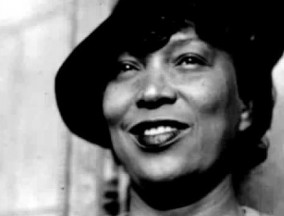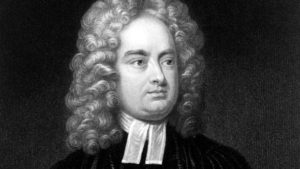
It is a melancholy object to those, who walk through this great town, or travel in the country, when they see the streets, the roads and cabbin-doors crowded with beggars of the female sex, followed by three, four, or six children, all in rags, and importuning every passenger for an alms. These mothers instead of being able to work for their honest livelihood, are forced to employ all their time in stroling to beg sustenance for their helpless infants who, as they grow up, either turn thieves for want of work, or leave their dear native country, to fight for the Pretender in Spain, or sell themselves to the Barbadoes….
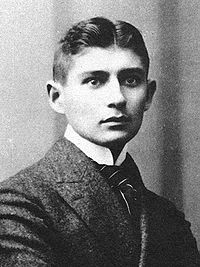
by Franz Kafka
“Alas,” said the mouse, “the whole world is growing smaller every day. At the beginning it was so big that I was afraid. I kept running and running, and I was glad when I saw walls far away to the right and left, but these long walls have narrowed so quickly that I am in the last chamber already, and there in the corner stands the trap that I must run into.”
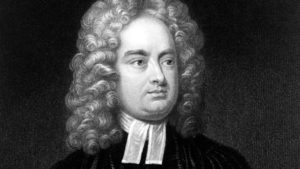
It is a melancholy object to those, who walk through this great town, or travel in the country, when they see the streets, the roads and cabbin-doors crowded with beggars of the female sex, followed by three, four, or six children, all in rags, and importuning every passenger for an alms. These mothers instead of being able to work for their honest livelihood, are forced to employ all their time in stroling to beg sustenance for their helpless infants who, as they grow up, either turn thieves for want of work, or leave their dear native country, to fight for the Pretender in Spain, or sell themselves to the Barbadoes….
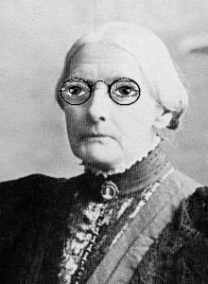
This heralds a turn in the tide of benevolence, when, instead of building churches and monuments to great men, and endowing colleges for boys, women will make the education and enfranchisement of their own sex the chief object of their lives.
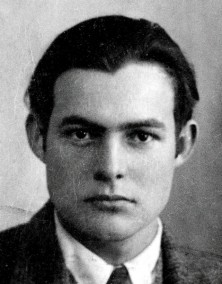
Ernest Hemingway | Paris. Paris in the winter is rainy, cold, beautiful and cheap. It is also noisy, jostling, crowded and cheap.

One morning, when Gregor Samsa woke from troubled dreams, he found himself transformed in his bed into a horrible vermin. He lay on his armour-like back, and if he lifted his head a little he could see his brown belly, slightly domed and divided by arches into stiff sections. The bedding was hardly able to cover it and seemed ready to slide off any moment. His many legs, pitifully thin compared with the size of the rest of him, waved about helplessly as he looked….
Original text by Italo Calvino and reading by Liev Schreiber | How well I know! — old Qfwfq cried,– the rest of you can’t remember, but I can. We had her on top of us all the time, that enormous Moon: when she was full — nights as bright as day, but with a butter-colored light — it looked as if she were going to crush us; when she was new, she rolled around the sky like a black umbrella blown by the wind; and when she was waxing, she came forward with her horns so low she seemed about to stick into the peak of a promontory and get caught there. But the whole business of the Moon’s phases worked in a different way then: because the distances from the Sun were different, and the orbits, and the angle of something or other, I forget what; as for eclipses, with Earth and Moon stuck together the way they were, why, we had eclipses every minute: naturally, those two big monsters managed to put each other in the shade constantly, first one, then the other.

from Orlando
by Virginia Woolf
The Great Frost was, historians tell us, the most severe that has ever visited these islands. Birds froze in mid-air and fell like stones to the ground.
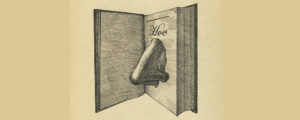
I: On 25 March an unusually strange event occurred in St. Petersburg. For that morning Barber Ivan Yakovlevitch, a dweller on the Vozkresensky Prospekt (his name is lost now—it no longer figures on a signboard bearing a portrait of a gentleman with a soaped cheek, and the words: “Also, Blood Let Here”)—for that morning Barber Ivan Yakovlevitch awoke early, and caught the smell of newly baked bread. Raising himself a little, he perceived his wife (a most respectable dame, and one especially fond of coffee) to be just in the act of drawing newly baked rolls from the oven….
Nikolai Vasilievich Gogol (1809-1852) was a Russian novelist, humorist, and dramatist, writing with an eye toward realism and sometimes magic realism. His works often satirized Russian society and government. “The Nose” and “The Overcoat” are two of his most well-known and acclaimed works.
Eckleburg thanks Project Gutenberg for their permission to reprint these classics.


